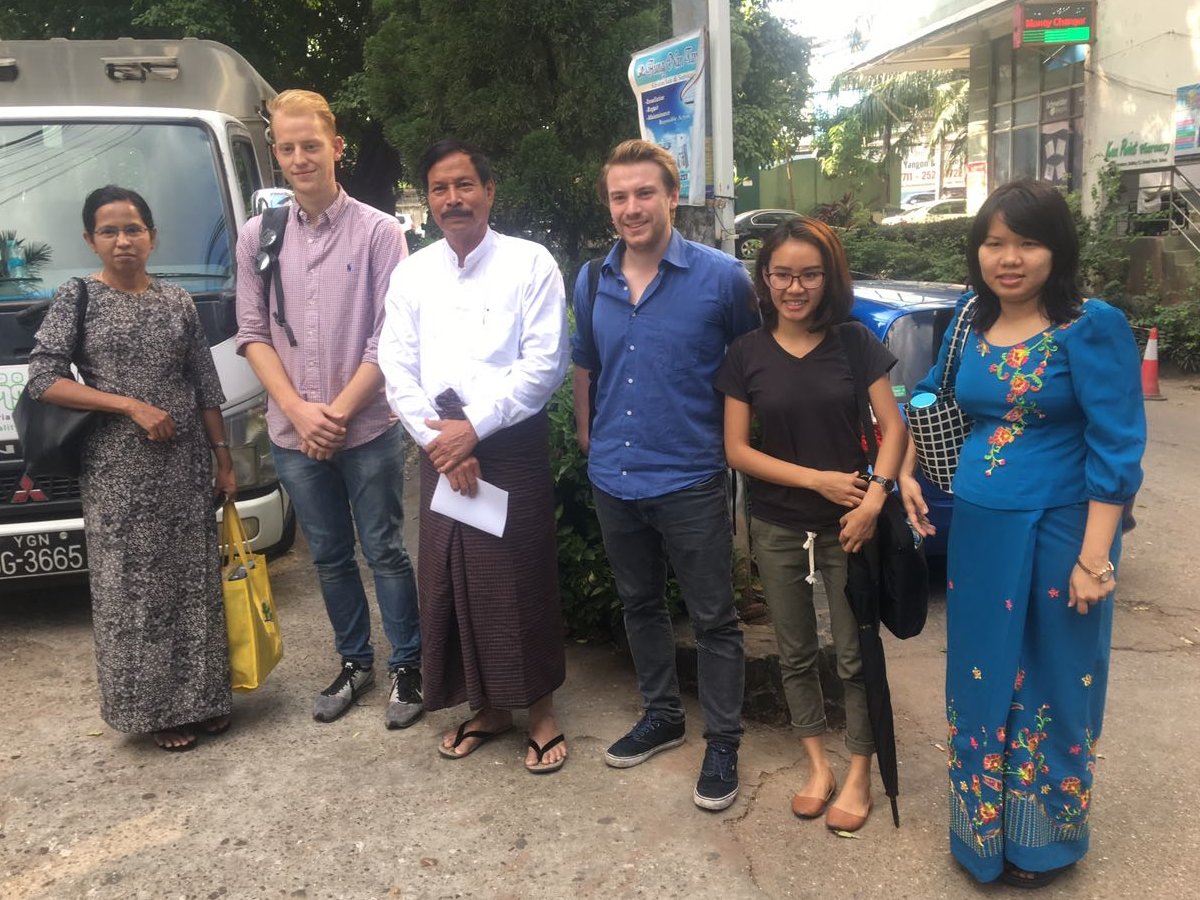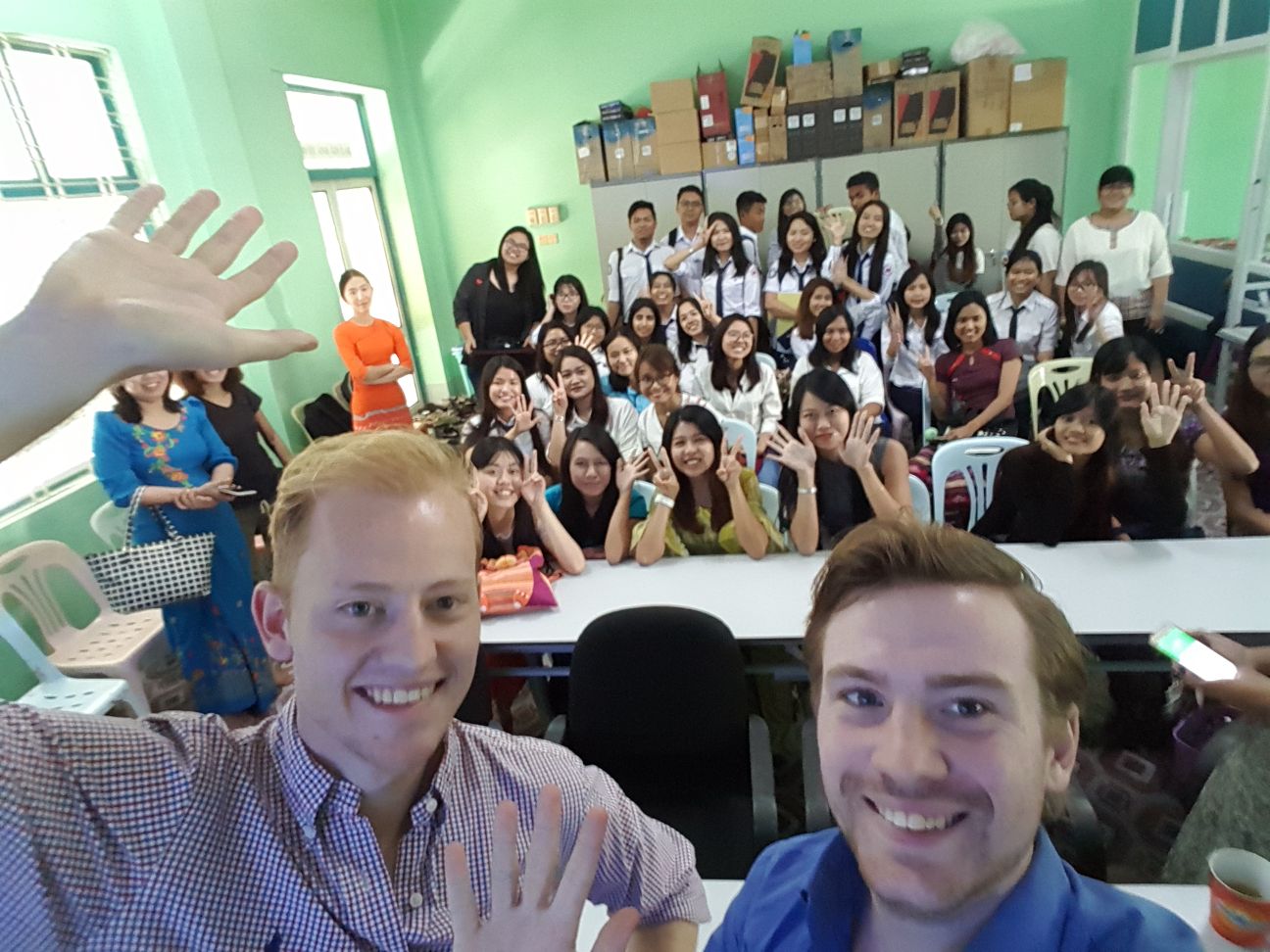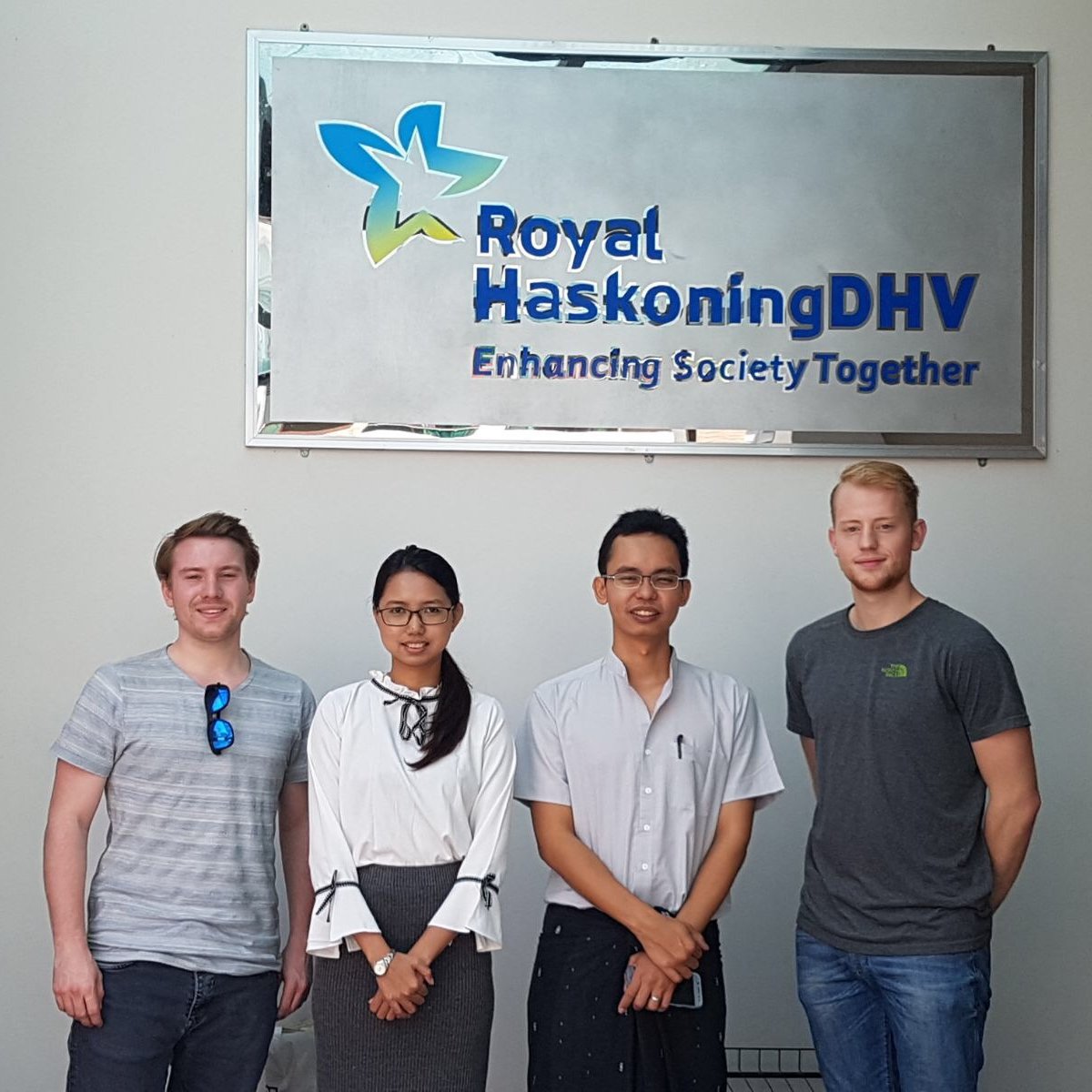Sustainable port development Myanmar
When in search for a Minor-Project as part of the Civil Engineering Bachelor program, Oscar Ophof and I knocked on the door of Martine Rutte for a quick chat on possible projects abroad. Both of us could not have imagined that nearly half a year later we would fly out to South-East Asia for a ten-week journey which would become the adventure of a life time.
In the last decade a lot has changed in the Republic of the Union of Myanmar concerning economic prospects and governance. As a nation with a favorable location between economic hubs like China and India and a government allowing for international businesses to prosper, the country sparks its agriculture, industry and tourism to grow rapidly. This will cause an enormous increase of maritime infrastructure activity. Whilst global forerunners of sustainability heavily update their ports and regulations to improve future prospects, Myanmar is in the starting blocks with great potential aiming at: preparing ports for a sustainable future. The aim of this project was therefore to research regulatory advisory measures to maximize long term benefits for Myanmar. The main problem in this specific case is the deficit of knowledge amongst the people in charge on what sustainable development returns to the country socially, economically and environmentally on a long-term basis. This is where the opportunity lied for us, to make a difference.
The idea of the project became: enhancing knowledge on the effect of sustainable port development regulations on Myanmar’s prospects. Besides the obvious fact that this challenge seems to be more of a management related problem than an engineering related one, the main issue for us was to get a clear understanding of the current domestic situation and the country’s port development approach. The opportunity of broadening our scope and developing our civil engineering related management skills, excited us almost as much as discovering a completely new culture to us. For the project we would be working together closely with the Myanmar Maritime University (MMU). Visiting their campus a couple of times and even getting the change to give a lecture to the Port and Harbor Department on the concept of sustainability and the ins and outs of our project.

By means of literature study, analysis on sight and interviews with stakeholders or experts like, amongst others, the Myanma Port Authority, Myanmar Engineering Council and Myanmar Industrial Port we gathered our intel and started working this out on paper. We constructed the project very transparently and logically. First, we needed a workable definition of sustainable port development. After the definition a framework was constructed to investigate how sustainable a port development project really is. This framework was used to test two comparable examples in the world namely, the Port of Singapore and the Integrated and sustainable port development project in Ghana and the same framework was used again to take a look at the approach in Myanmar. This domestic, nationwide approach was very hard to find since there exists no such thing as a clear, written, legal document stating this approach. Nor a physical or online place were these things could be found.
That is why we based this approach on field research. This was by far the most interesting part of this project. We got the chance to speak with the most fascinating people with far more modern views than we expected. Yet we also came across cases in which people were very reluctant to changes. After comparing the three case studies we started on formulating an advice. This advice, together with every step that lead to these recommendations were fine-tuned and send back to our student-colleagues, partners, interviewees and friends in Myanmar. Because we spoke to so many people and took the time to travel the country during our research, we got to know the country’s history, people, nature, food, music and even a glimpse of their future.
The adventure was more than a success. We learned so much and got the opportunity to pass on our knowledge to the next generation of Myanmar’s engineers and managers. Our goal of enhancing knowledge has definitively been achieved since one of the students at MMU became the first ever to do a thesis on sustainable port development.
We want to thank everyone who helped and supported us through this adventure and are looking forward to the next one!

Dirk Jansen & Oscar Ophof
